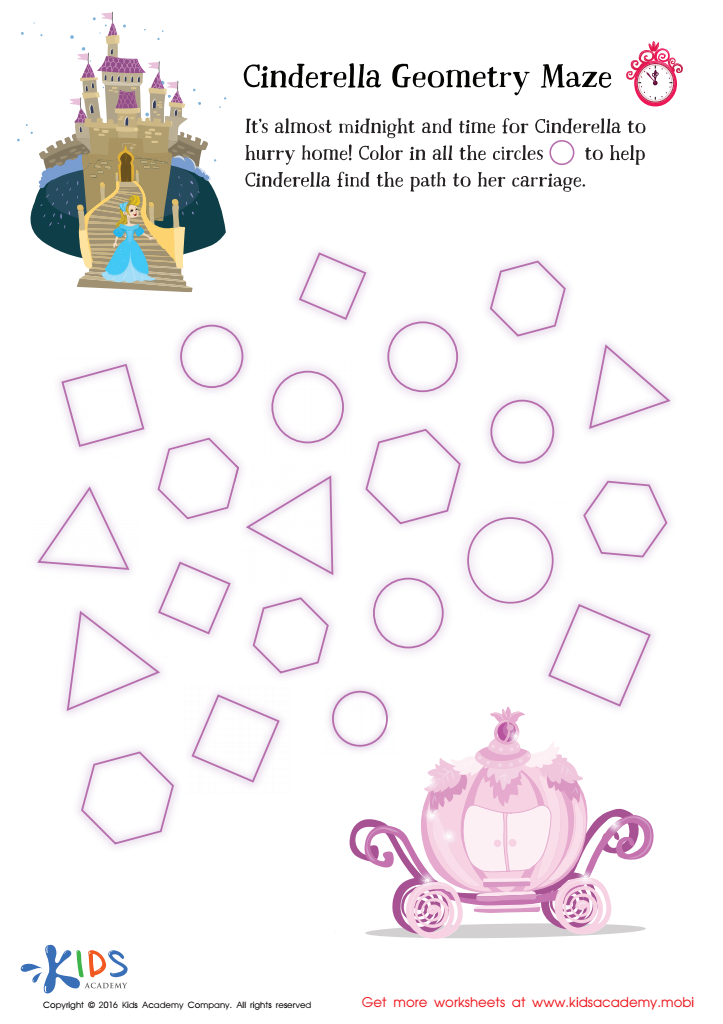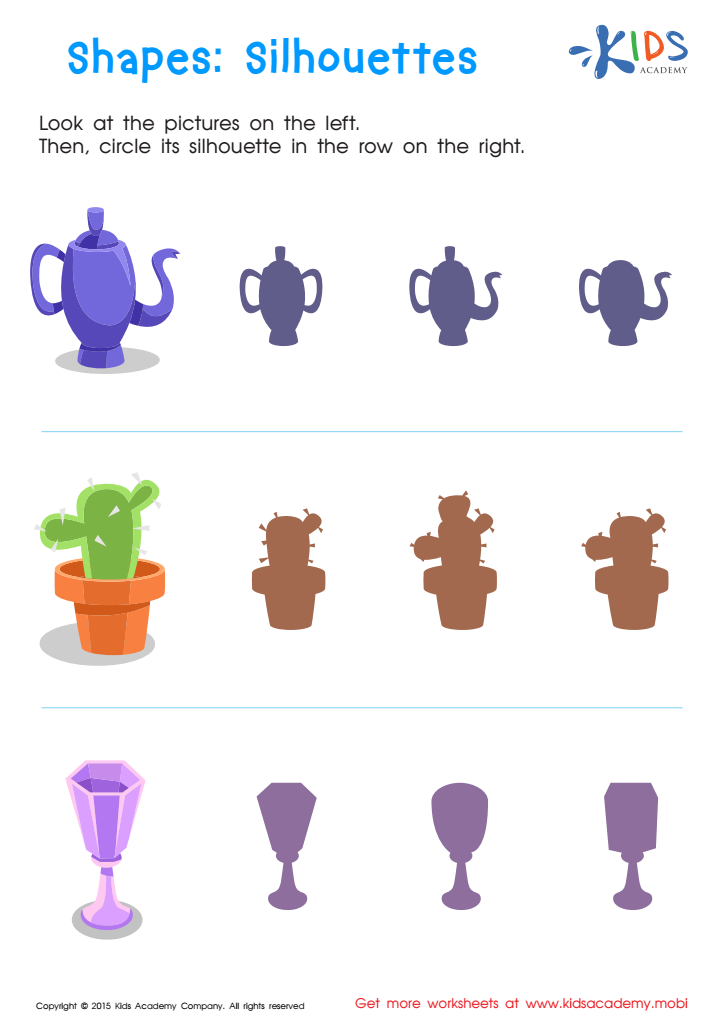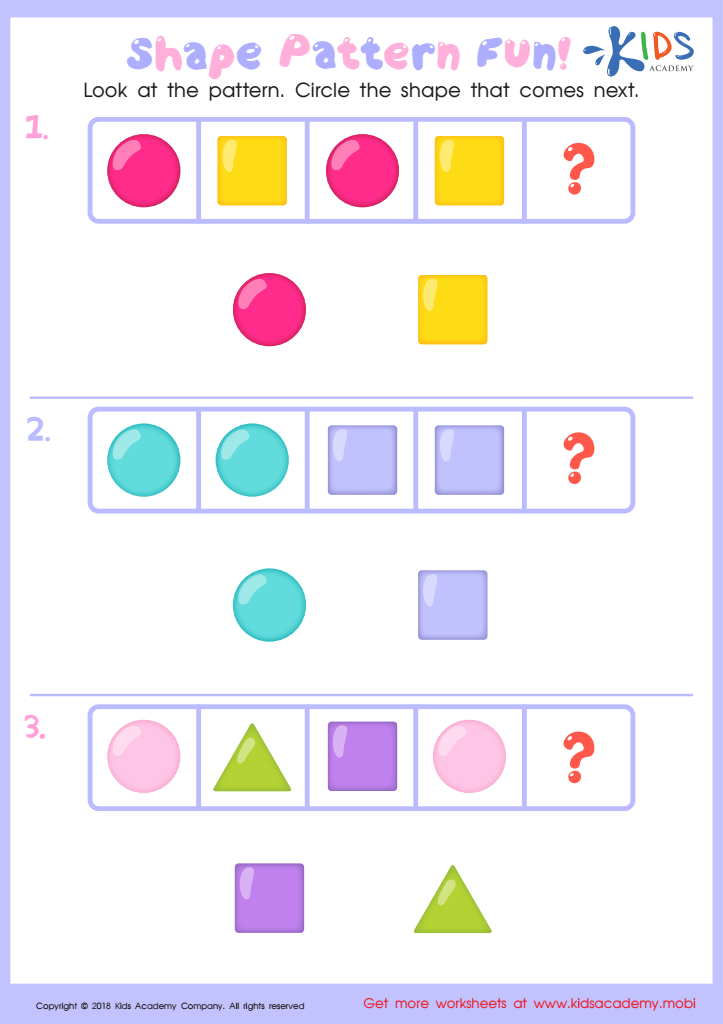Problem-Solving Skills Normal Matching Worksheets for Ages 5-7
5 filtered results
-
From - To
Enhance your child's cognitive abilities with our engaging Problem-Solving Skills Normal Matching Worksheets designed for ages 5-7. Our expertly crafted worksheets support young learners in developing critical thinking and foundational math skills through fun and interactive tasks. Each worksheet encourages children to match objects, numbers, and shapes, fostering their analytical and logical reasoning abilities. Perfect for classroom settings or at-home learning, these printable worksheets are designed to be both educational and enjoyable. Help your child build a strong problem-solving foundation with these colorful and thoughtfully designed resources. Download now and watch your child excel!


Make the Same Pattern Worksheet


Cinderella Geometry Maze Worksheet


Logic Game Sorting Worksheet


Silhouettes – Shapes Worksheet


Shape Pattern Fun Worksheet
Parents and teachers should prioritize problem-solving skills in children aged 5-7 because these foundational abilities significantly influence their overall development and future success. At this age, kids are developing critical thinking abilities, emotional intelligence, and social skills, all of which are central to problem solving.
Fostering problem-solving skills helps children learn how to approach challenges independently, enhancing their confidence and resilience. Instead of feeling frustrated, they learn to break down problems into manageable steps, consider multiple solutions, and test their ideas. This nurtures a growth mindset — the belief that abilities can improve with effort, which is vital for lifelong learning and adaptability.
In educational settings, problem-solving aids in understanding complex subjects, promoting cognitive development. It encourages active learning, curiosity, and the ability to make connections across different areas of knowledge. Conversely, children not exposed to these skills may struggle with academic tasks and peer interactions, leading to frustration and lower self-esteem.
Socially, strong problem-solving skills allow children to navigate conflicts with peers more effectively, promoting better relationships and cooperation. These skills also lay the groundwork for empathy, as children learn to see problems from others' perspectives.
Hence, developing these skills early can significantly impact a child's intellectual, social, and emotional well-being, equipping them for future complexities and challenges.

 Assign to My Students
Assign to My Students
















